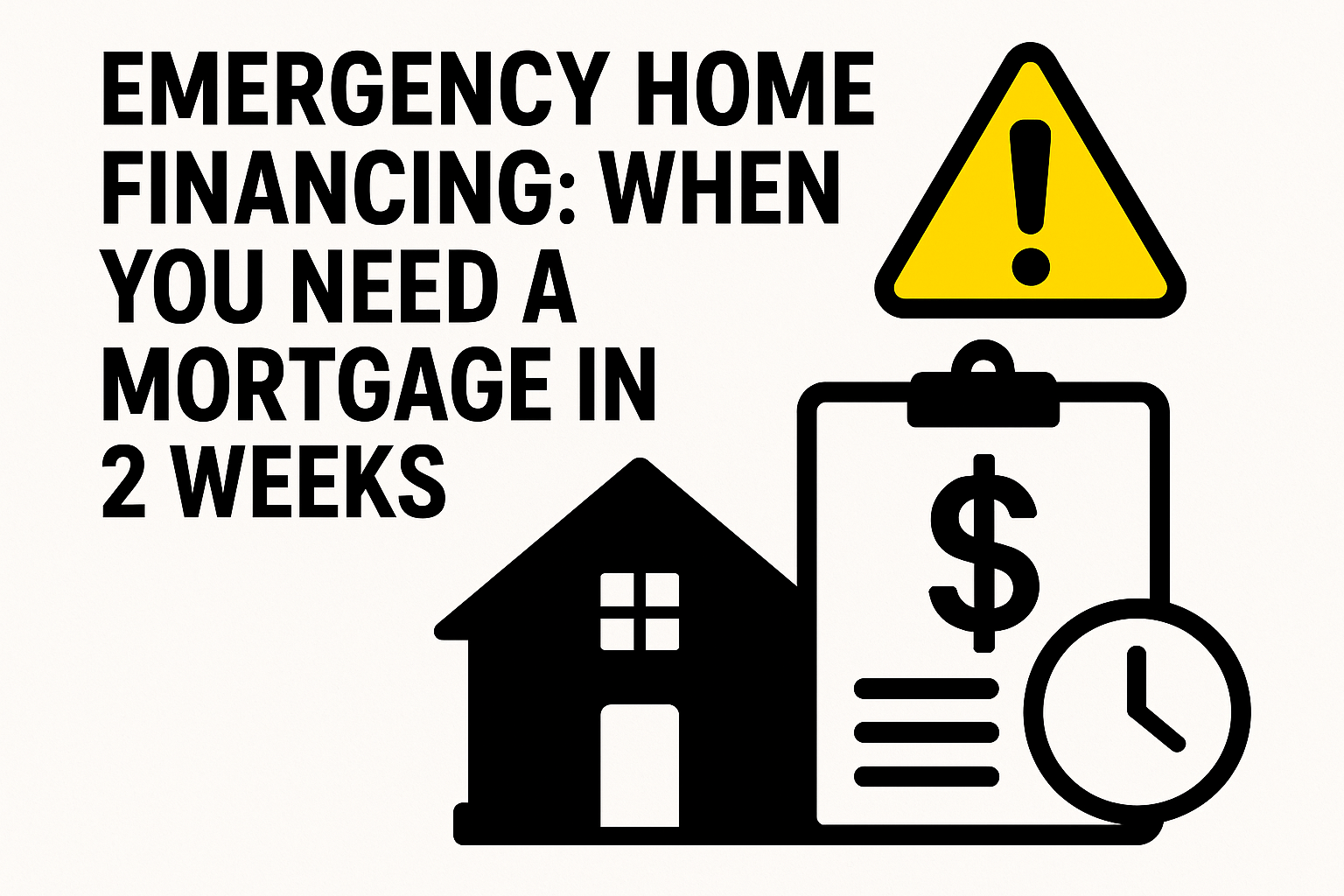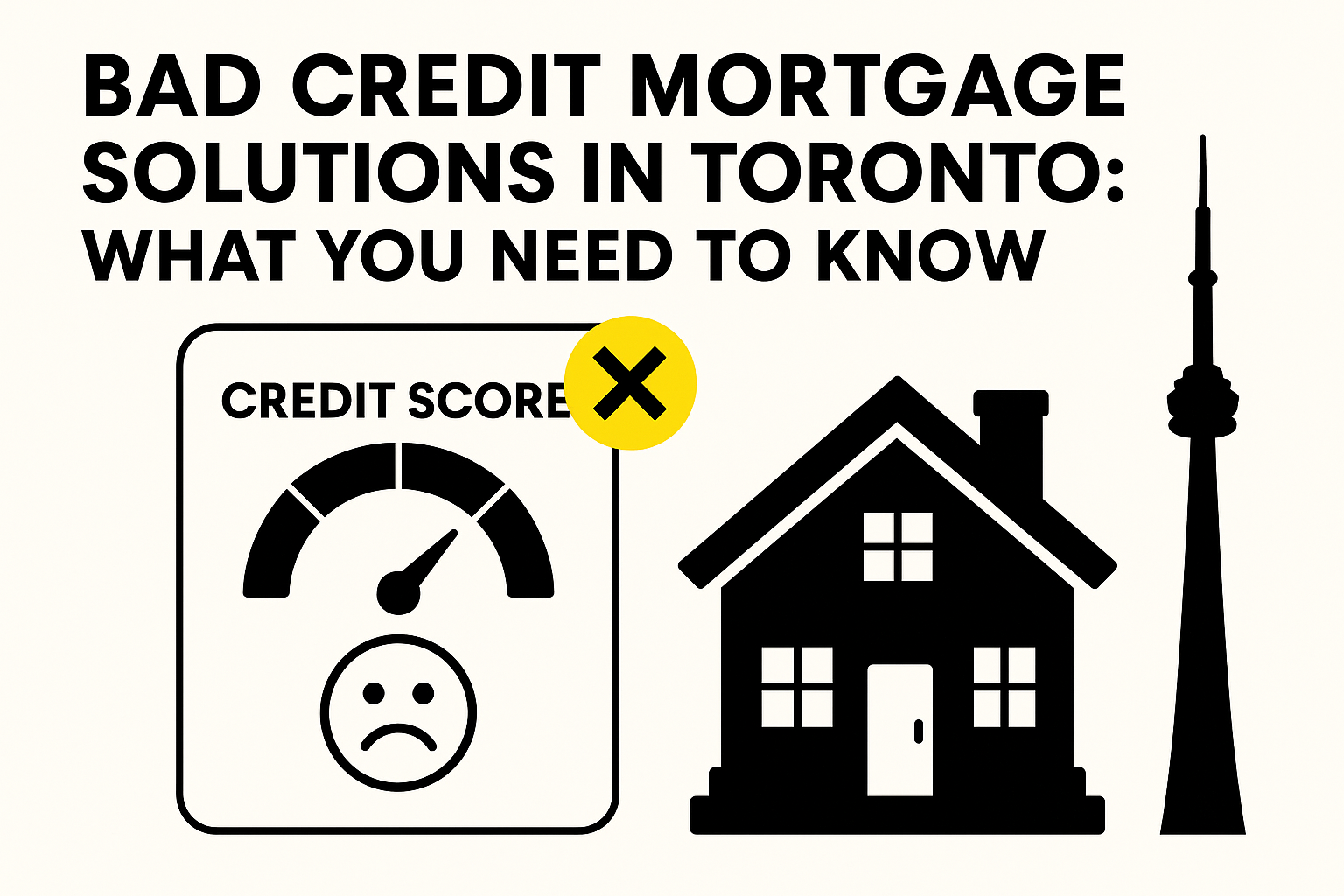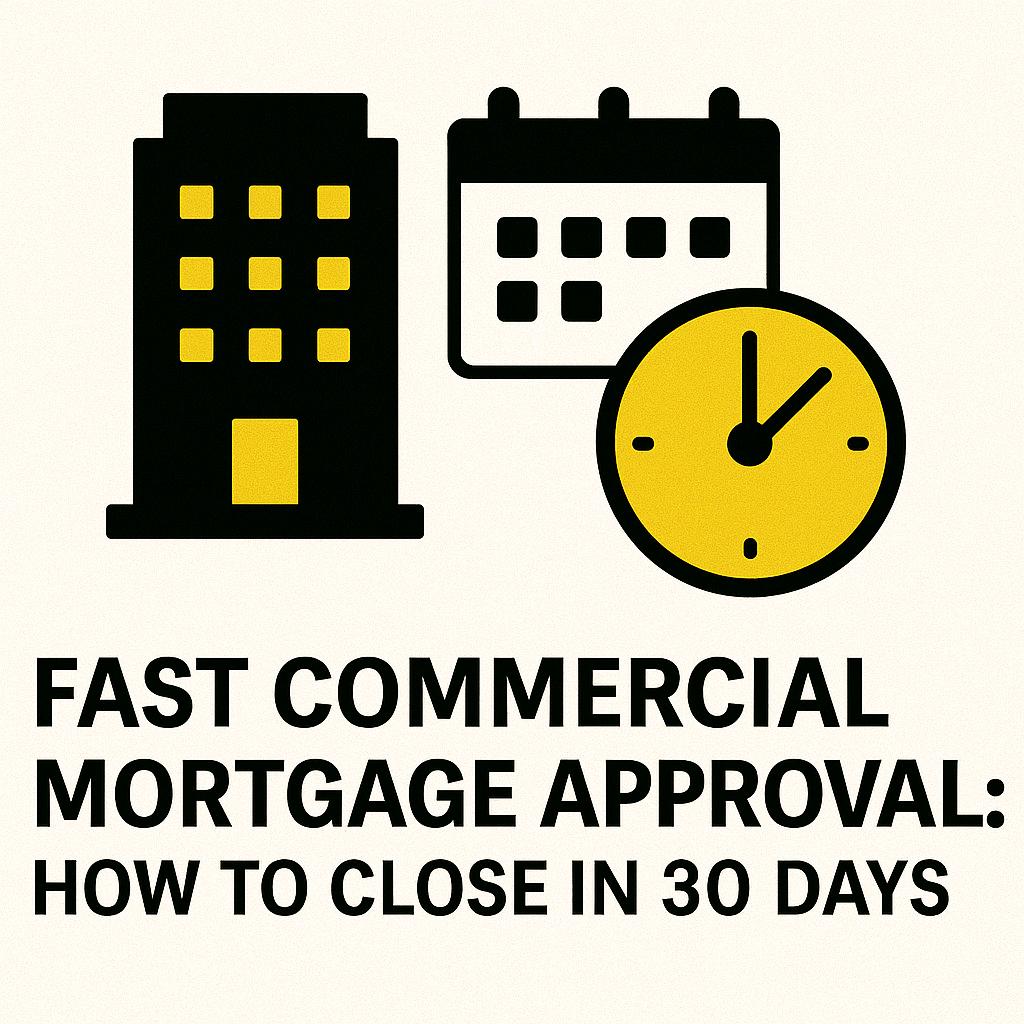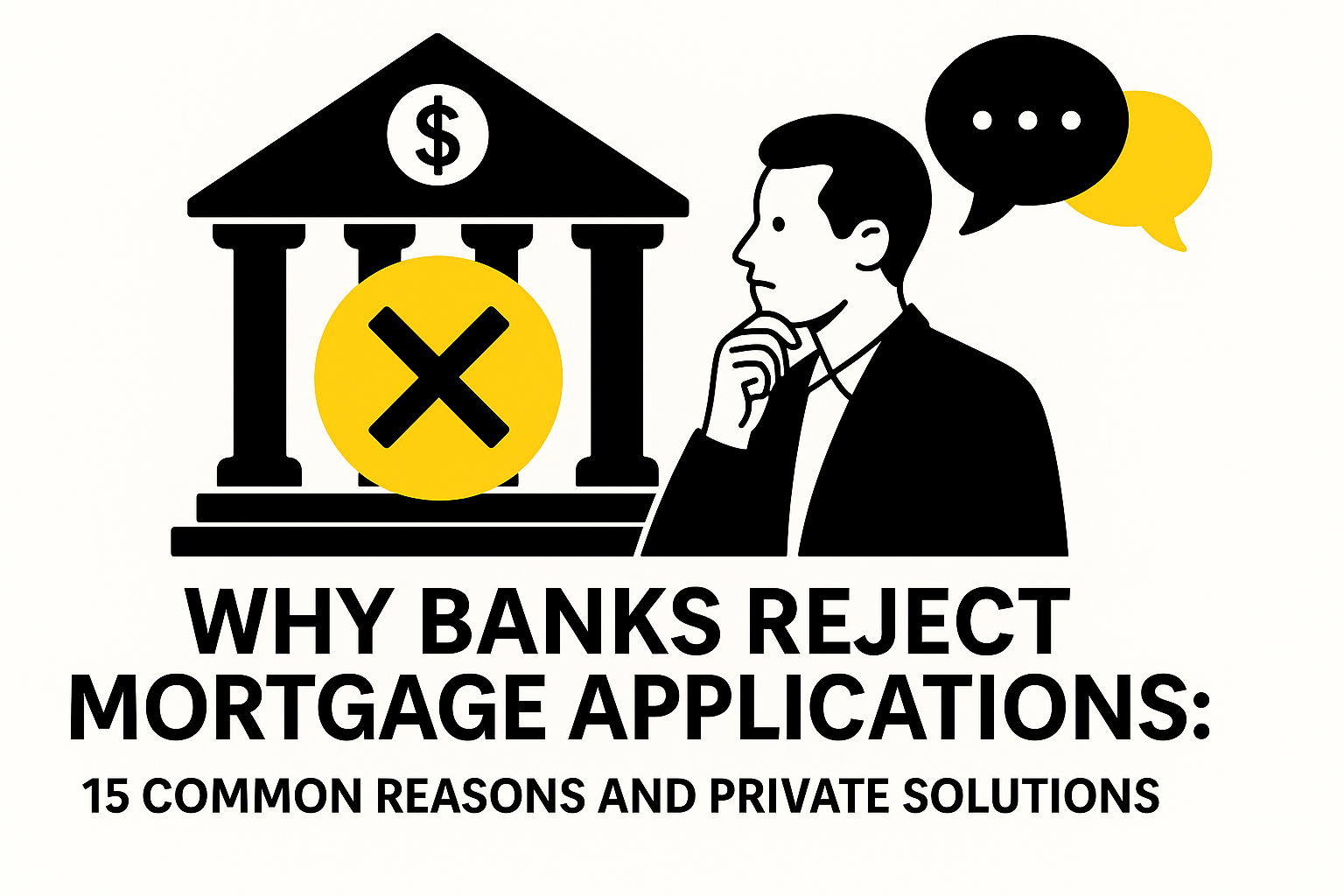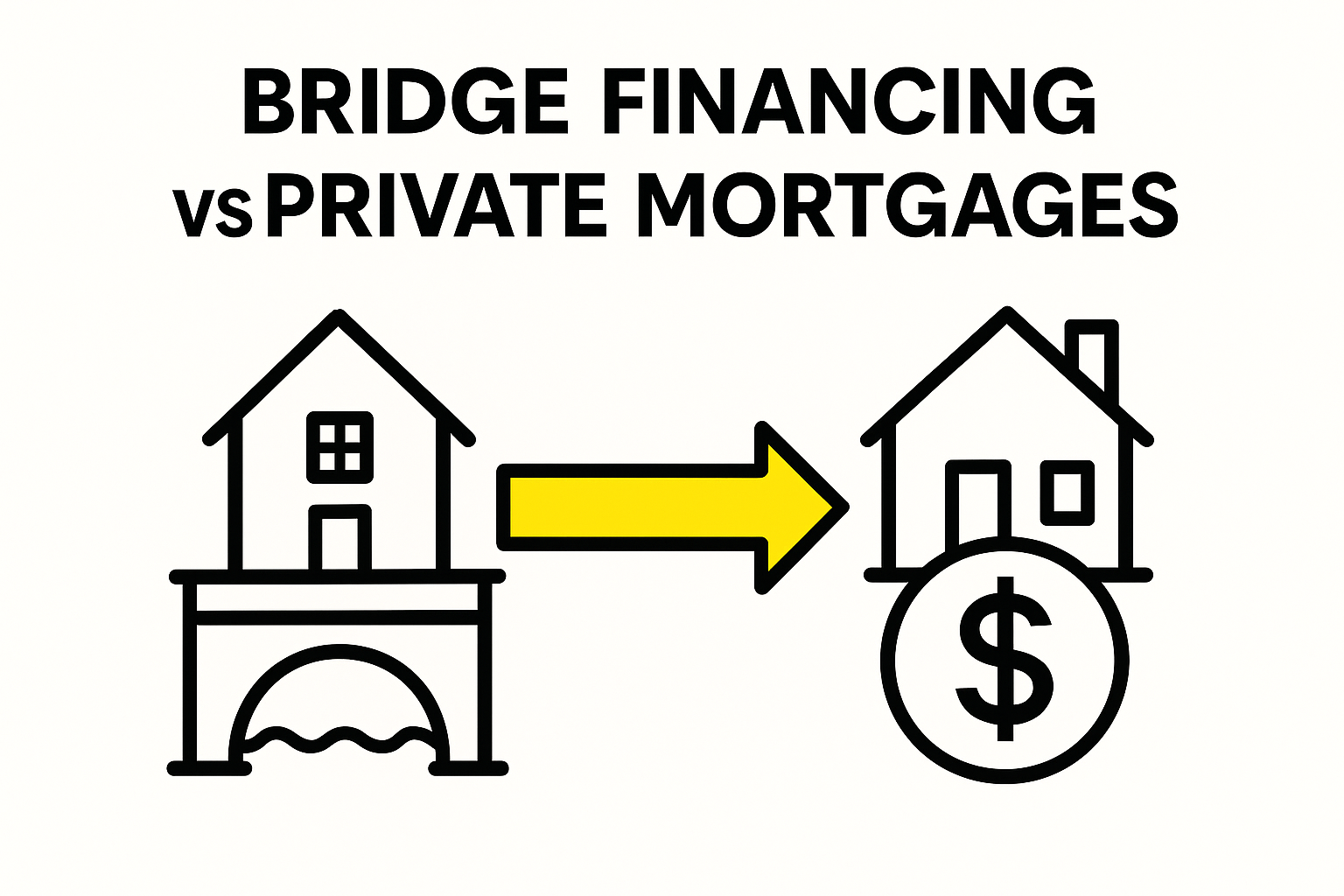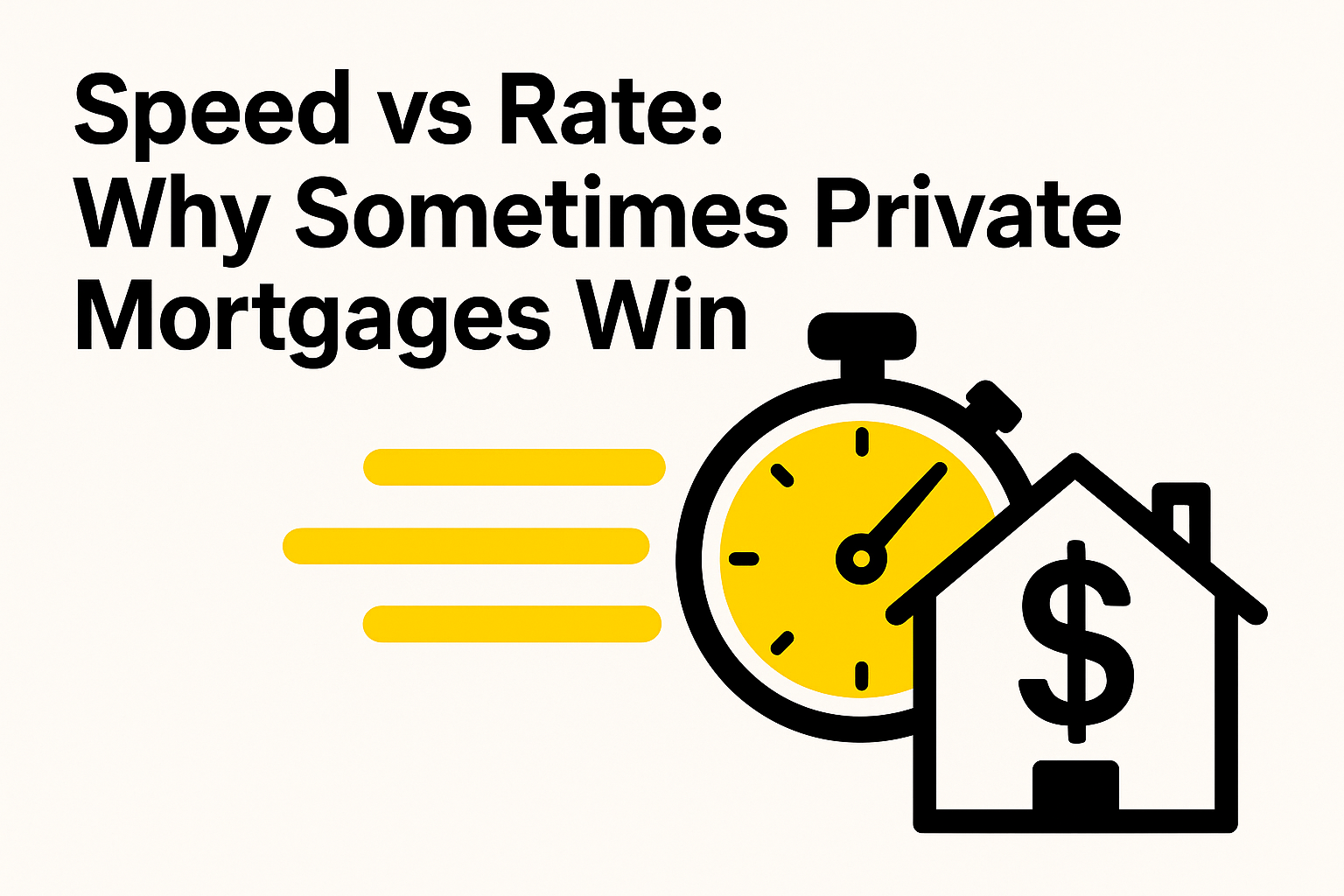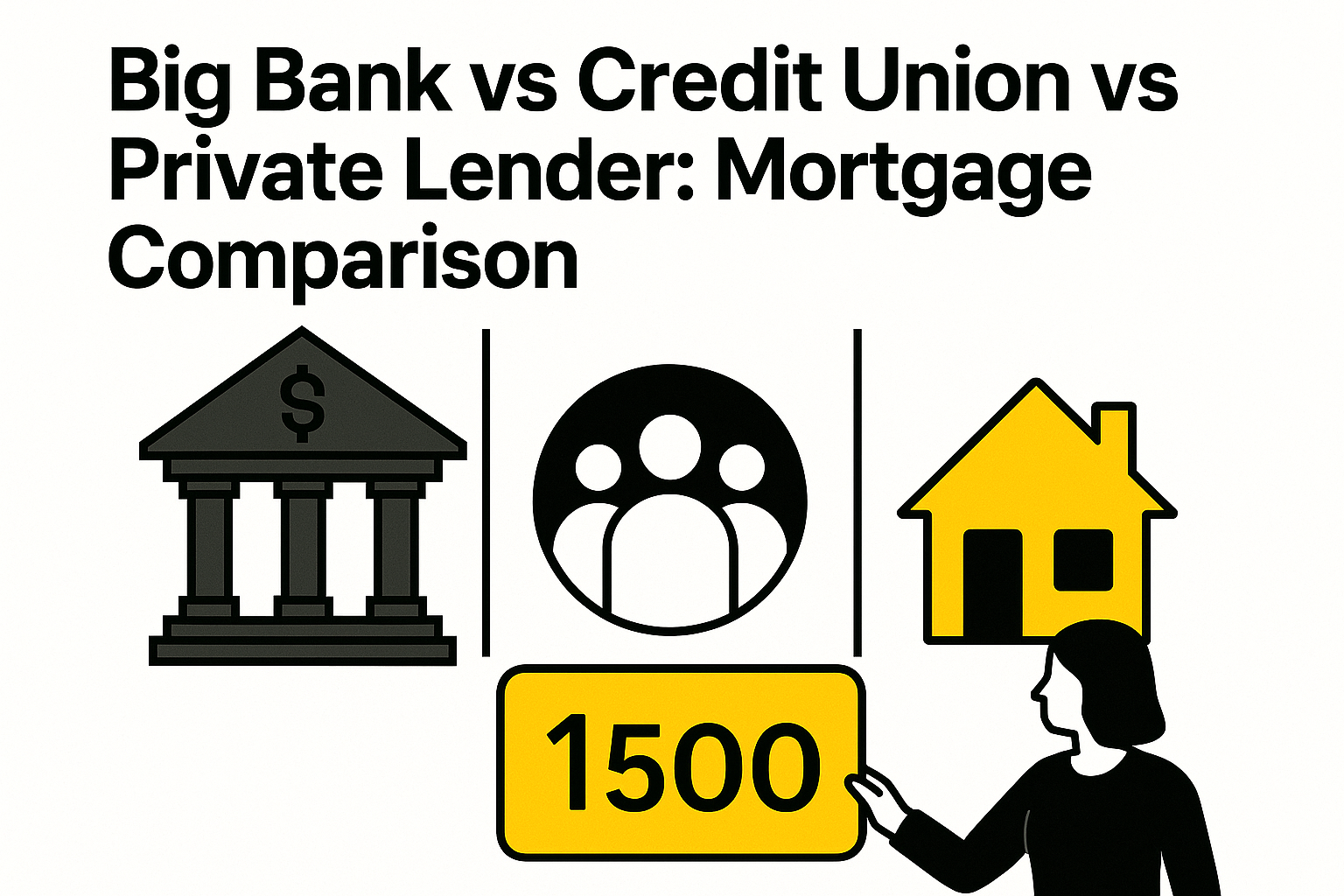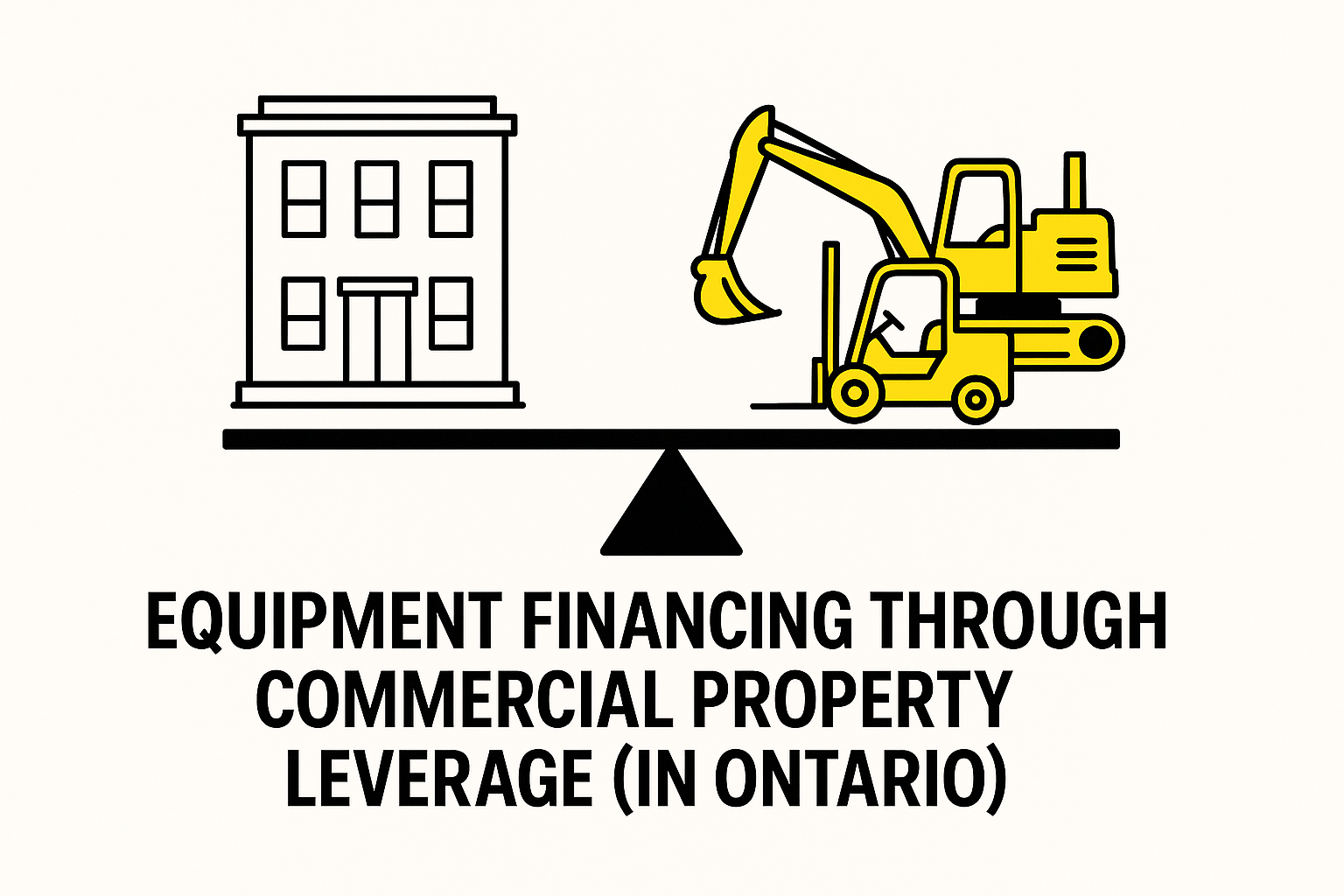Imagine discovering on a Friday afternoon that your mortgage approval has been rescinded due to last-minute bank policy changes, with your dream home closing scheduled for the following Friday – exactly 7 business days away. Your realtor calls frantically explaining that the sellers won’t extend the closing date because they’ve already purchased their next property, your lawyer warns about potential legal consequences of a failed closing, and your moving truck is booked for next weekend. This hypothetical nightmare scenario represents the ultimate homebuying crisis where every traditional financing option becomes useless due to timing constraints. Most buyers facing this situation assume they’ll lose their deposit, their home, and possibly face legal action, simply because they believe no legitimate lender can possibly approve and fund a mortgage in such compressed timeframes.
The reality is that emergency home financing exists specifically for these impossible situations where traditional banking timelines don’t align with real estate market demands or unexpected circumstances. While banks require 30-45 days minimum for mortgage processing, private lenders have built business models around urgent approvals that can save deals, protect deposits, and get buyers into homes when conventional wisdom says it’s impossible. Understanding how emergency financing works, what it costs, and when it makes financial sense isn’t just useful knowledge – it’s essential information that could save your homeownership dreams when timing becomes your biggest enemy.
What Qualifies as Emergency Home Financing
Urgent Closing Deadlines That Can’t Move
Emergency home financing situations typically involve firm closing deadlines that cannot be extended due to circumstances beyond your control. This might include sellers who’ve already committed to their next purchase, estate sales with legal deadlines, or foreclosure auction purchases with mandatory closing dates.
The key characteristic is that postponing the closing isn’t an option, regardless of financing challenges. Unlike normal real estate transactions where buyers can request extensions, emergency situations involve hard deadlines that create severe consequences for missing target dates.
These scenarios often arise in competitive markets where sellers have multiple backup offers and zero motivation to accommodate financing delays, or in legal situations where court orders mandate specific closing timelines.
Financing Fallthrough Scenarios
The most common emergency financing situation involves last-minute financing failures – when your approved mortgage gets rescinded days before closing due to job changes, credit issues discovered during final verification, or bank policy changes that affect your qualification.
Traditional lenders perform final verification 24-48 hours before closing, sometimes discovering issues that weren’t apparent during initial approval. Job status changes, large purchases, new credit inquiries, or income verification problems can trigger immediate approval withdrawal.
Bank mergers, policy changes, or internal restructuring can also affect approved mortgages at the last minute, leaving borrowers scrambling for alternatives with minimal time to secure replacement financing.
Competitive Market Purchase Pressures
Hot real estate markets create emergency financing needs when buyers must close quickly to secure desirable properties. Sellers may demand rapid closings to choose between multiple offers, or buyers may need bridge financing to purchase before selling their current homes.
Investment property opportunities often require immediate action when attractive properties become available at below-market prices. These situations don’t allow time for traditional mortgage processing that could cost buyers their competitive advantage.
Why Traditional Banks Can’t Meet 2-Week Deadlines
The 30-45 Day Reality of Bank Processing
Traditional mortgage approval involves multiple stages that cannot be compressed into emergency timelines. Banks require property appraisals, income verification, employment confirmation, credit analysis, and legal documentation that takes weeks to complete properly.
The appraisal process alone typically requires 7-14 days, including appraiser scheduling, property inspection, comparable analysis, and report completion. Banks won’t proceed without professional appraisals, regardless of purchase urgency.
Underwriting departments operate with established workflows, review queues, and approval hierarchies that don’t accommodate emergency processing. Even priority applications must follow standard procedures that banks won’t bypass for individual transactions.
Documentation Requirements That Take Time
Bank documentation requirements involve third-party verification that creates unavoidable delays. Employment letters, income confirmation, tax return analysis, and credit verification all require time-consuming processes that external parties control.
Employers may need several days to prepare employment letters, accountants require time to provide income verification, and government agencies don’t expedite tax transcript requests for mortgage applications.
Legal documentation, title searches, and insurance arrangements also involve multiple parties whose timelines don’t align with emergency financing needs, creating bottlenecks that make 2-week closing impossible through traditional channels.
Approval Bottlenecks You Can’t Control
Banking bureaucracy creates approval bottlenecks that borrowers cannot influence or accelerate. Underwriter availability, management approval requirements, and committee decisions operate on bank schedules that don’t accommodate individual urgency.
Risk management departments review applications systematically, following protocols that prioritize accuracy over speed. Emergency situations don’t change these fundamental approval processes that banks use to manage lending risk.
Private Lending: Your 2-Week Solution
How Private Lenders Approve in 48-72 Hours
Private lenders operate with streamlined approval processes designed specifically for urgent situations where traditional banking timelines don’t work. They focus on property value and borrower equity rather than complex income verification that creates delays.
The approval process emphasizes essential factors that can be verified quickly: • Property value through automated valuation models or expedited appraisals • Borrower equity through down payment verification and credit assessment • Exit strategy understanding how the loan will be repaid or refinanced • Basic income verification without extensive third-party documentation
Private lenders make decisions based on risk factors they can assess immediately, rather than comprehensive analysis that requires weeks of documentation gathering.
Streamlined Documentation Requirements
Emergency private lending requires minimal documentation compared to traditional mortgage applications. Basic income proof, identification, property information, and down payment verification often suffice for approval decisions.
Private lenders accept bank statements, employment letters, or professional credentials as income verification rather than requiring extensive tax returns, pay stub analysis, or employer verification that creates processing delays.
Property valuation may use automated systems, recent appraisals, or expedited professional appraisals that can be completed within 24-48 hours rather than standard appraisal timelines.
Funding Speed That Saves Deals
Private lenders can fund approved applications within 5-10 business days, making 2-week closings realistic when traditional banking fails. This speed advantage often means the difference between securing your property and losing it to timing constraints.
The funding process involves simpler legal documentation, direct lender relationships, and streamlined administrative procedures that eliminate delays common in traditional mortgage processing.
Emergency Financing Scenarios and Solutions
Last-Minute Financing Fallthrough Recovery
When traditional mortgage approval gets rescinded days before closing, private lending provides the only realistic option for saving the transaction. The key is acting immediately rather than hoping the bank will reconsider or extend timelines.
Successful fallthrough recovery requires immediate private lender contact within 24 hours, complete documentation preparation to expedite the application process, legal coordination to ensure closing can proceed on schedule, and seller communication to maintain confidence in the transaction.
Private lenders understand fallthrough scenarios and can often structure financing to address whatever caused the original approval failure while meeting emergency timing requirements.
Bridge Financing for Immediate Purchases
Bridge financing allows buyers to purchase new homes before selling existing properties, eliminating timing coordination challenges that can kill deals in competitive markets.
Emergency bridge loans work particularly well when you’ve found your ideal property but haven’t sold your current home, market conditions favor quick purchases over extended negotiations, or carrying two mortgages temporarily makes financial sense.
Investment Property Quick Closings
Investment property opportunities often require immediate action when attractive properties become available below market value. Traditional investment property financing takes even longer than residential mortgages, making private lending essential for time-sensitive purchases.
Emergency investment property financing works well for foreclosure auctions with mandatory closing deadlines, estate sales requiring quick closings, or distressed properties where speed provides negotiating advantages.
The Real Costs of Emergency Financing
Interest Rate Premiums for Speed
Emergency private financing typically costs 2-4% more than traditional mortgage rates, reflecting the premium for speed, flexibility, and risk that private lenders accept for urgent approvals.
However, the rate comparison must consider opportunity costs of lost deals, legal consequences of failed closings, or market timing advantages that emergency financing provides.
A 9% private mortgage for 12 months often costs less than losing a property purchase, paying legal penalties, or missing investment opportunities that require immediate action.
Legal and Administrative Rush Fees
Emergency transactions involve rush fees for legal work, appraisals, and administrative processing that adds $2,000-5,000 to total closing costs depending on transaction complexity and timeline pressure.
Budget for legal rush fees for expedited document preparation, expedited appraisal costs for same-day property valuations, administrative premiums for after-hours processing, and coordination fees for managing compressed timelines.
Comparing Emergency Costs vs Lost Opportunities
The key financial analysis involves comparing emergency financing costs against the consequences of missing your purchase deadline or losing the property entirely.
Lost deposit amounts, legal liability for breach of contract, and opportunity costs of missing your ideal property often exceed emergency financing premiums significantly.
Documentation You Need for 2-Week Approval
Essential Documents for Fast Processing
Emergency private lending requires streamlined documentation that focuses on essentials rather than comprehensive analysis:
Personal identification and credit authorization allowing immediate credit checks and identity verification without delays.
Income verification through recent bank statements, employment letters, or professional credentials that demonstrate earning capacity without extensive third-party verification.
Property information including purchase agreements, property details, and any existing appraisals or valuations that expedite property assessment.
Down payment verification showing source and availability of funds needed for closing, often the most critical factor in emergency approval decisions.
What You Can Skip in Emergency Situations
Emergency private lending often bypasses documentation that traditional banks require but that creates unnecessary delays for time-sensitive transactions.
You may not need extensive employment verification if basic income proof and down payment demonstrate capacity, detailed tax return analysis when bank statements show sufficient cash flow, or complete property inspections if you’re comfortable with property condition.
Digital Submission and Processing
Modern private lenders accept digital document submission, electronic signatures, and online processing that accelerates approval timelines compared to traditional paper-based systems.
Prepare digital copies of all documents, ensure high-quality scans, and be ready to submit complete packages immediately when private lenders request information.
Managing the 2-Week Timeline
Day-by-Day Action Plan
Days 1-2: Immediately contact emergency financing specialists, prepare basic documentation, and assess realistic timeline requirements for your specific situation.
Days 3-5: Submit complete applications to multiple private lenders, provide all available documentation, and coordinate property appraisals or valuations as required.
Days 6-8: Receive approval decisions, coordinate legal documentation preparation, and ensure all parties understand compressed timeline requirements.
Days 9-12: Complete legal documentation, arrange funding transfers, and coordinate closing logistics with lawyers, realtors, and other transaction parties.
Days 13-14: Execute closing with all documentation complete, funds available, and contingency plans ready for any last-minute complications.
Working with Emergency Financing Specialists
Emergency financing requires lenders who specialize in urgent approvals and understand the unique challenges of compressed timelines. Look for lenders with proven emergency approval track records, dedicated emergency processing teams, flexible documentation requirements, and strong legal support.
Contingency Planning for Complications
Emergency financing plans should include contingencies for potential complications that could jeopardize closing deadlines despite best preparation efforts.
Prepare backup options including multiple private lender applications, extended closing negotiations as last resort options, legal consultation about contract obligations, and financial reserves for additional costs that emergency situations may require.
Here’s your emergency financing action timeline:
| Timeline | Critical Actions | Key Milestones | Backup Plans |
| Days 1-2 | Contact emergency lenders, assess situation | Lender meetings scheduled | Multiple lender contacts |
| Days 3-5 | Submit applications, gather documents | Applications submitted | Document preparation priorities |
| Days 6-8 | Secure approval, coordinate legal work | Approval received | Alternative lender options |
| Days 9-12 | Complete documentation, arrange funding | Legal documents ready | Rush processing fees |
| Days 13-14 | Execute closing, transfer funds | Successful closing | Last-minute problem resolution |
This timeline provides structure for managing emergency financing while maintaining flexibility for unexpected complications.
Additional information about urgent lending options is available through Mortgage Professionals Canada.
Converting Emergency Financing to Long-Term Solutions
Planning Your Exit Strategy
Emergency private financing works best as bridge financing rather than permanent mortgage solutions. Plan your transition to traditional bank financing from day one of your emergency loan.
Common exit strategies include refinancing to traditional mortgage once timing pressure resolves, property sale if emergency financing was used for investment purposes, or renewed private financing with better terms once emergency premiums no longer apply.
Improving Your Traditional Lending Profile
Use your emergency financing period to address whatever created the original urgency or financing challenges that required private lending solutions.
This might involve employment stabilization, credit improvement, income documentation organization, or property improvements that enhance traditional bank qualification for future refinancing opportunities.
Timing Your Refinancing Application
Monitor traditional lending markets and your personal financial situation to identify optimal timing for transitioning from emergency private financing to conventional bank mortgages.
Market conditions, policy changes, and your improved financial documentation can create refinancing opportunities sooner than expected, potentially reducing the total cost of emergency financing strategies.
Frequently Asked Questions
Can private lenders really approve mortgages in 48-72 hours? Yes, private lenders focusing on emergency financing can approve applications within 2-3 days by streamlining documentation requirements and focusing on property value and borrower equity rather than extensive income verification.
How much more expensive is emergency financing compared to traditional mortgages? Emergency private financing typically costs 2-4% more than bank rates, plus rush fees of $2,000-5,000. However, these costs often pale compared to losing property purchases or facing legal consequences of failed closings.
What’s the minimum down payment required for emergency private mortgages? Most emergency private lenders require 20-25% down payment minimum, though some work with 15% for exceptional circumstances. Higher down payments improve approval odds and terms significantly.
Can I get emergency financing for investment properties? Yes, many private lenders specialize in emergency investment property financing, often with faster approval than residential purchases since rental income and property value support the application.
What happens if emergency financing falls through at the last minute? Having multiple private lender applications and maintaining communication with sellers about potential delays provides backup options. Emergency financing specialists understand timing pressure and work to prevent last-minute failures.
Is emergency financing available across all Canadian provinces? Emergency private lending availability varies by province, with Ontario, BC, and Alberta having the most options. Rural areas may have limited emergency financing resources compared to major urban centers.
Conclusion
Emergency home financing serves as a critical safety net when traditional banking timelines collide with real estate market realities that don’t accommodate 30-45 day approval processes. While the costs are higher than conventional mortgages, emergency private lending often represents the only viable option for saving property purchases, avoiding legal consequences, or capitalizing on time-sensitive investment opportunities that can’t wait for standard banking procedures. The key to successful emergency financing lies in immediate action, realistic cost assessment, and treating these solutions as temporary bridges to better long-term mortgage options rather than permanent financing strategies.
Understanding that emergency financing exists and knowing how to access it quickly can transform impossible situations into manageable challenges that protect your homeownership goals when timing becomes critical. The borrowers who succeed with emergency financing are those who recognize when speed provides value that justifies premium costs and who work with specialized lenders experienced in urgent approvals rather than hoping traditional banks will somehow accelerate their inflexible processes.
Facing an emergency home financing deadline? Contact HERCULES Team Investment Group today to explore immediate private lending solutions that can save your property purchase when traditional banking timelines threaten your closing date and homeownership dreams.

